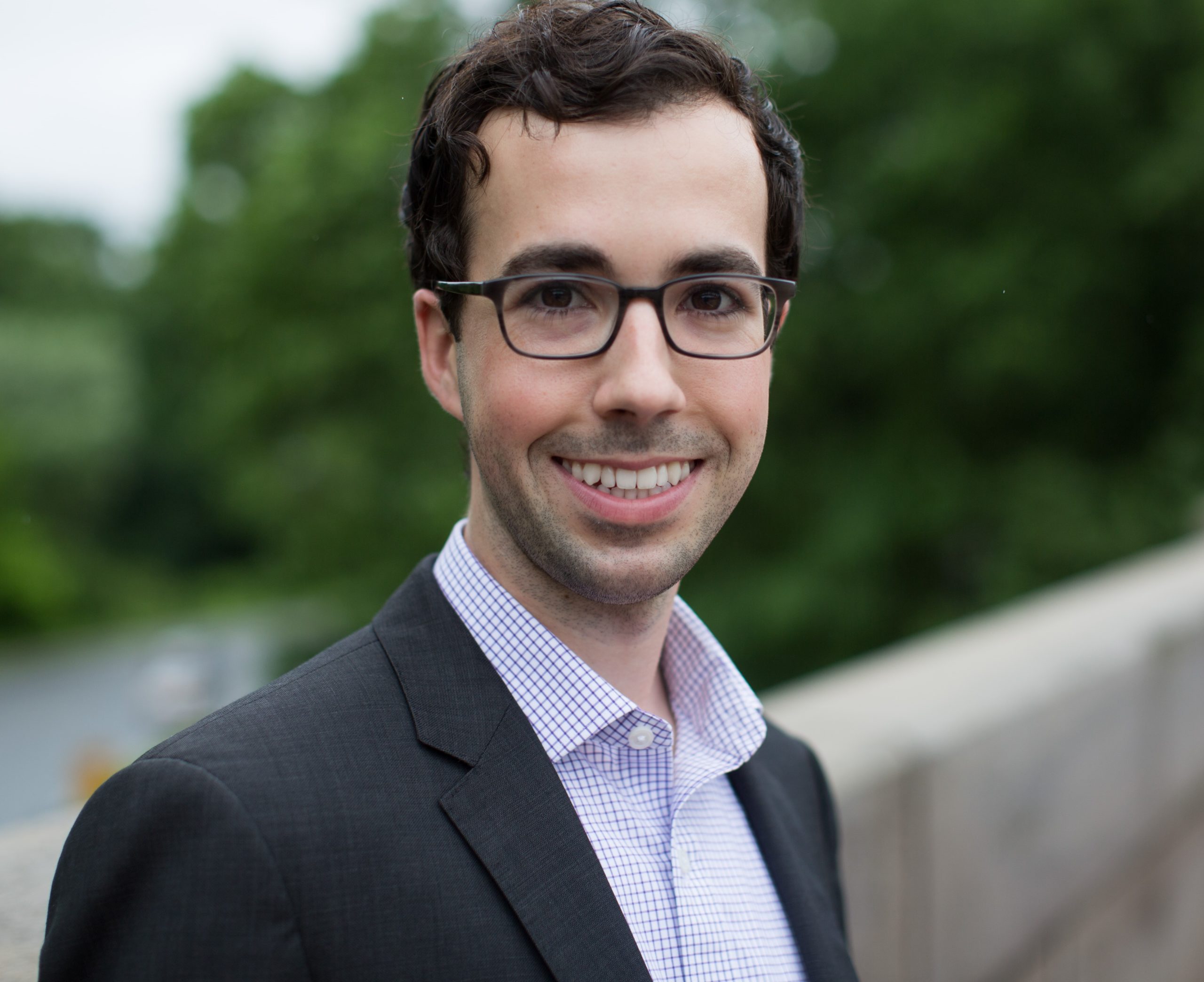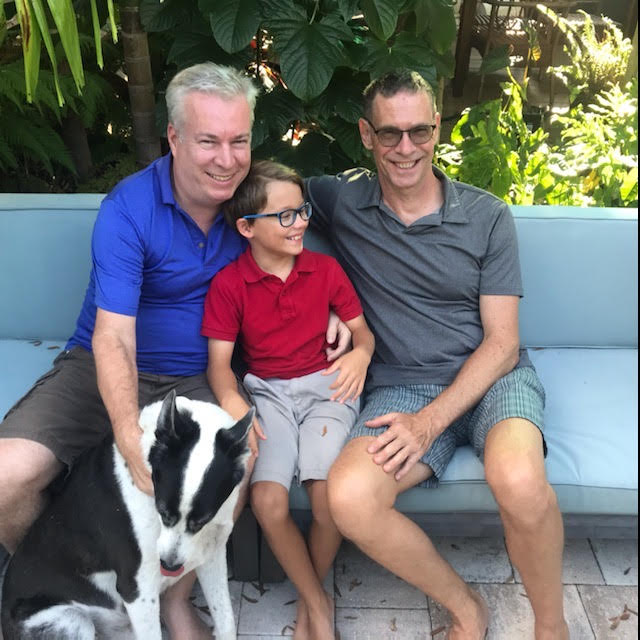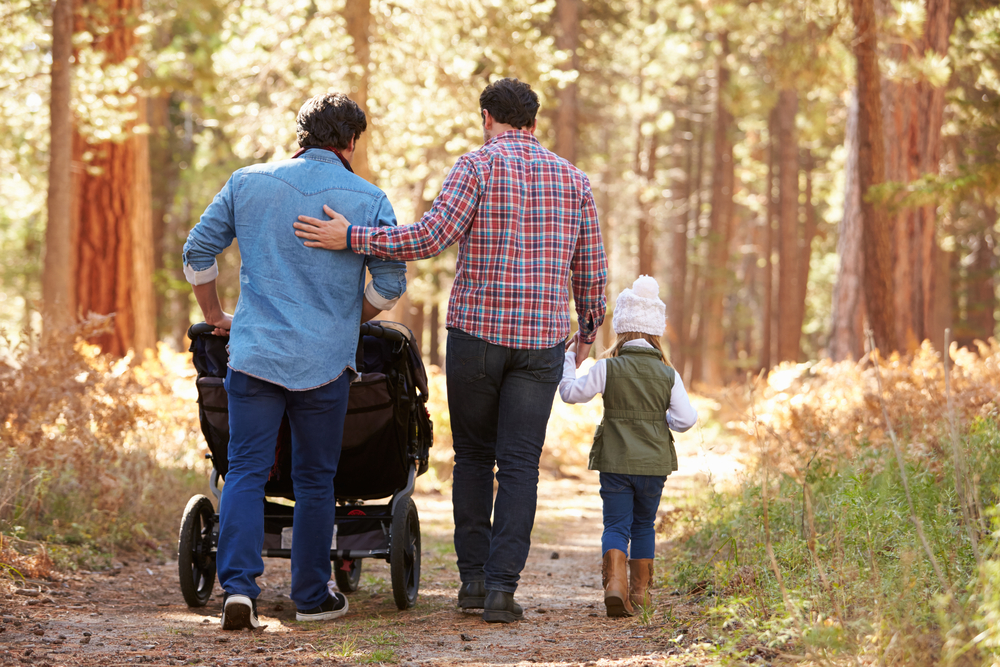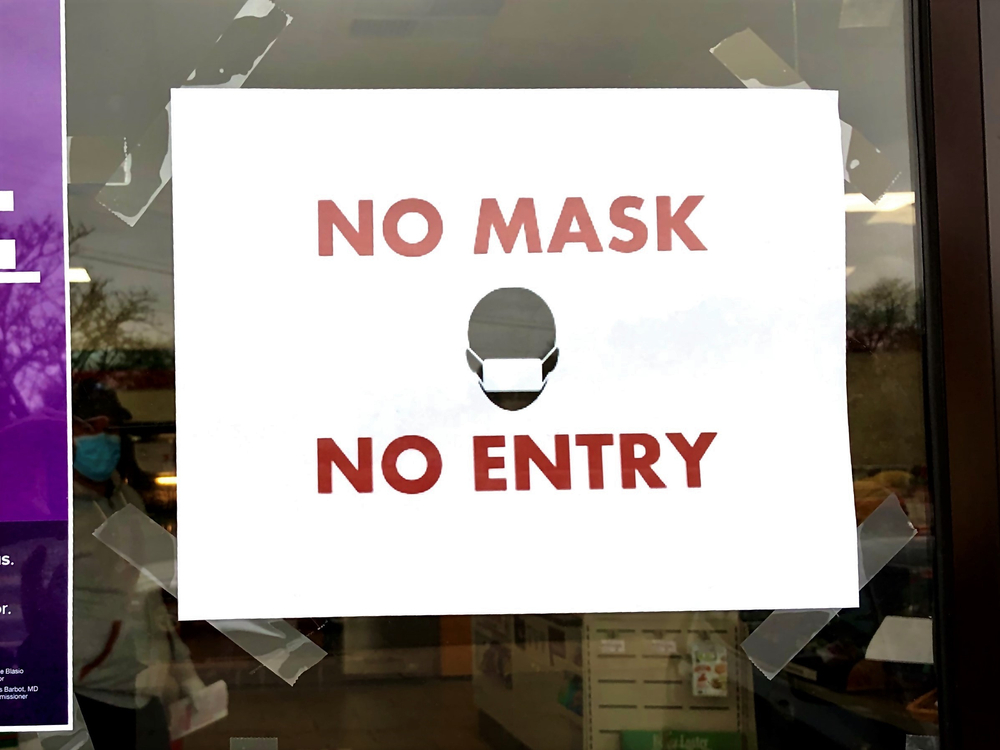As the five-year anniversary of the Supreme Court ruling in favor of same sex marriage is celebrated along with the court’s June ruling prohibiting employee discrimination based on sexual orientation, a decision from the highest court in its next term will affect LGBTQ rights when it comes to fostering children.
The suit, Fulton v. City of Philadelphia, was brought by Catholic Social Services and several foster parents who sued the city after it ended its contract with the Catholic agency in 2018. The city’s move came when it learned CSS wouldn’t license same-sex couples to be foster parents.
Catholic Social Services has stated no same-sex couple ever approached it asking to foster a child, but that the scenario would violate its beliefs and First Amendment right to free speech and freedom of religion.
Lower courts have ruled in favor of the city of Philadelphia, and the Supreme Court denied a motion for an emergency injunction in 2018, but will now hear the case.
Supporters of each side say a ruling against their interest could diminish the pool of foster parents when they are needed more than ever as the opioid crisis has caused more children to be removed from their parents.
Nationwide, there are 400,000 children in foster care, a quarter of whom cannot live with their biological parents or any other relative, and are waiting for adoption.

“There are families (in Philadelphia) that have been certified to provide foster care through Catholic Social Services and their homes are sitting empty today,” said Nick Reaves, an attorney with the Becket Fund for Religious Liberty, which is representing CSS.
“They are holding out hope that CSS will be able to reopen. Some of (the foster parents) have adopted through foster care. They want to work with the agency because they share their beliefs.”
RELATED: A win for religious freedom or a blow to women’s health? Views differ on court ruling.
RELATED: No man, no entry. Two women barred from Orlando strip club set off legal fight
A ruling in favor of CSS could open the door to more lawsuits and more agencies having the discretion to choose not to work with LGBTQ parents or possibly other people who don’t align with certain beliefs, according to Connie Going, who has taken part in more than 1,000 adoptions as a caseworker, mediator or through her small St. Petersburg, Fla. agency.
“Children are waiting for families,” Going said. “My son waited 17 years. I adopted my other son when he was 12. He’d been in 47 foster homes. They didn’t care what their family looked like. They didn’t care what color they were. They wanted somebody to love them and accept them the way they are.”
As a social worker for more than 20 years, she worked with many gay couples and anecdotally found them more willing to foster or adopt older, harder-to-place children than heterosexual couples. The children and teens who struggle with behavior and developmental issues because of their time in foster care or from drug abuse while they were in the womb need a parent or parents who can face their struggles.
“Parents who have fought through their own challenges are strong advocates for themselves and they are powerful advocates for their children,” she said.
Just over 21 percent of same-sex couples have adopted children and nearly 3 percent are fostering children, according to a report from the Williams Institute of the UCLA School of Law. Comparatively, 3 percent of heterosexual couples adopt children and 0.4 percent foster children.
Families with religious faiths also make up a strong base of foster parents and “walk the talk” in helping others, Going added.
“We want everyone at the party,’’ she said. “ We don’t want to turn anyone away.”
Nationwide, 45 percent of the children Catholic foster agencies placed had special needs, according to Reaves.
“Families who are motivated to foster or adopt because of their faith are maybe on the whole more willing to take in children who are more difficult to place,” he said. “CSS is often more able to place larger sibling groups and minority children better than their secular counterparts.”
Ongoing conflict
In 1990, the Supreme Court ruled that religious groups are not exempt from the mandates of local, state and federal laws, but that hasn’t stopped the conflict between religious beliefs and nondiscrimination mandates.
When a baker refused to make a wedding cake for a same sex couple in Lakewood, CO, it led to Masterpiece Cakeshop V. Colorado Civil Rights Commission. The commission claimed the bakery violated nondiscriminatory regulations. In 2018, the case went before the U.S. Supreme Court, which ruled in favor of the bakery.
The court said protected religious beliefs in general cannot be used to deny protected people access to services, but viewed the commission as non-neutral and concluded it violated the Free Exercise Clause. It did not rule on the broader question of antidiscrimination laws conflicting with freedom of religion and speech.
“The (Fulton v. City of Philadelphia) case reflects the increasing number of religious conflicts that have arisen in response to LGBTQ legal protections,” said Holly Hollman, a religious freedom attorney and general counsel for BJC, a non-partisan organization focused on protecting religious liberty, formerly known as Baptist Joint Committee for Religious Liberty.
“The Supreme Court has recognized that cities and states can protect LGBTQ people, just as they protect other classes of individuals.’’
BJC is a supporter of the rights of religious entities and believes they should control and follow their religious teachings about human sexualtiy.
“That freedom does not create an automatic exemption to nondiscrimination protections for LGBTQ people,” Hollman said. “BJC has long opposed opposed any discrimination with government funds. The city (of Philadelphia) should be able to set its standards for recruiting foster parents and require its contractors to apply the same nondiscrimination standard.”
Change in the air
The Department of Justice has submitted a brief in support of Catholic Social Services.
“Governmental action tainted by hostility to religion fails strict scrutiny almost by definition,” the brief stated. “This court has never recognized even a legitimate governmental interest — much less a compelling one — that justifies hostility toward religion.”
The Child Welfare League of America, a 100-year-old organization representing the needs of children, weighed in on the case on its website.
“The (Trump administration’s) brief offers little in terms of its impact on children and families and instead supports the argument that it is not about children but a case of religious discrimination,” the league stated. “The best interests of a child mean finding a good match that requires an individualized assessment of the potential foster and adoptive parent(s) and foster children. … A ruling that frames the issue in terms of a fight over freedom of religion or freedom from religion in the politics of 2020 would all but reject the importance of children under ‘state custody,’ our responsibility.”
President Donald Trump told religious leaders at the National Prayer Breakfast in February that faith-based agencies choosing not to work with same-sex couples would still be able to get federal funding.
And in November, the Department of Health and Human Services released a rule rolling back a 2016 discrimination regulation instituted by the Obama administration that stated people could not be excluded from participation in programs (such as fostering or adopting children) based on sexual orientation or gender identity.
Opening and closing doors
Going, the former social worker, worries a Supreme Court ruling in favor of Catholic Social Services will reduce the options for foster children.
“It opens the door to limiting interfaith couples, Jewish couples, single parents, people who aren’t religious,” she said, because an agency can let its religious beliefs determine who it thinks is a good parent. She remembers when Florida’s laws were much more restrictive up until the 1990s, and didn’t allow black children to be placed with white families, or gay people to adopt.
“They would have to sign an affidavit saying they were not gay,” Going said.
After gay adoption was legalized, she recalled a lesbian couple who took a parenting course mandated by the state at a religious affiliated agency. They were asked to leave the class after the first day.
“This couple has gone on to adopt seven kids and they have all been successful,” she said. “Had they not been resilient after they were diminished by that agency,” their seven children may have languished months or years longer in foster care.
“We don’t think if the Supreme Court protects CSS then all of a sudden (other agencies) are going to jump out of the woodwork and start raising new objections” to other groups of prospective foster parents, Reaves said.
But if it rules against CSS and its doors are forever closed, a well developed pool of foster parents may decide not to take in more children. While it seems they could go to another agency, Reaves said the relationship between foster parents and agencies isn’t so easily replicated.
“Let’s say the city closed down an agency that specifically focuses on serving the Latino community,” he said. Yes, those people could go somewhere else but they might not get the same level of support that made their fostering successful. Also, other agencies might not be able to recruit Latino foster families as well as the one that had a long history with this community.
There are agencies that have a reputation for working well with LGBTQ foster families, he added. Allowing CSS to focus on who it works with best doesn’t limit other agencies from working with LGBTQ clients.
“The happy middle ground is allowing this diversity of agencies,” he said.
Gay foster parents
John Johnson and Thomas Yablonski have been foster parents to 8-year-old Ernest for a year. The married couple has been together 25 years and would have liked to have adopted children or fostered earlier, but took care of both their mothers for many years.

“After both our moms had passed we started the process to become foster parents,” Johnson said. “We thought starting as foster parents was a good route because it gives us a chance to see what it’s like to be parents.”
The experience has proven to be a very good one. If Ernest is unable to go back to his biological father, they would definitely adopt him.
“He is a really affectionate kid. He’s a very smart kid,” Yablonski said. “He has a lot of personality. His vocabulary or how he turns a phrase is what you would hear a 60-year-old say. He’s a character.”
Yablonski and Johnson are very involved in phone calls and supervised visits with Ernest’s parents. Neither the parents nor Ernest have seemed uneasy with the fact that they are gay.
Before Ernest, they fostered two other boys for much shorter time periods, because they went to live with relatives. When one of those boys first arrived, the child asked Johnson if he was married and he replied that he was married to Tom.
“ A couple days later, we were driving to the library and he asked Tom if he was married and he said he was married to me,” Johnson recalled. “Then (the boy) said ‘But that’s so gay.’ We said ‘Yeah, literally it is.’ And then he was okay with it and never brought it up again.”
“Because there are positive role models on TV now with Modern Family and things like that I think kids understand it,” Yablonski said.
The foster care agency they work with are definitely okay with the couple’s same-sex relationship, because case workers are asking Yablonski and Johnson to foster more children.
Still, they are concerned with the ramifications of Fulton V. City of Philadelphia.
“Sometimes a foster child goes to live with a relative or a parent’s best friend. What if the closest uncle is gay?” Johnson asked. If an agency charged with placing this child has the option of not working with same-sex foster parents, could it lean away from placing him with a gay relative or family friend, he said.
Roadblocks and hoops
“This all makes me worry it just makes it that much harder for same-sex couples to foster or adopt,” said Havila Eubanks, who adopted 8-year-old Becket with her wife, Paula Eubanks, eight years ago as a newborn.
The time and effort parents of any gender, race, religion or sexual preference put into adopting children is long and hard.
“I can’t even tell you how many times things fell through. It made us feel so defeated. We wanted to just quit, but we weren’t going to. Of course, it’s worth the whole process,” she said. “Becket was the perfect match at the perfect time. I feel so blessed to be his mom.”
The Eubanks, who live in Pittsburgh and were married in a civil ceremony in Vermont in 2004, have been together 32 years.
They didn’t have legal married status when they began their quest to adopt a child in 2008. At the time, Massachusetts was the only state where two adults, gay or heterosexual, could jointly adopt a child without being married.
There were celebrations and heartbreak along their five-year journey. Several times they were matched with children, only to learn the agency didn’t work with gay parents. The Eubanks supported one birth mother for eight months and counted the days until they would adopt her baby, but she decided to keep the infant a week before her delivery.
“Maybe I shouldn’t compare it to someone losing a baby (in utero) but that’s how we felt,” Eubanks said. “We had been planning for and loving this baby from the start.”
Numerous times they made it through several steps of the process, only to learn the agency with the child didn’t want to work with gay couples, even though their profile states they are gay.
Adoptive parents also have to make sure the rules of their state align with the rules of states where the child lives. For example, some states allow adoptive parents to pay a birth mother’s rent, medical bills, food etc. while others permit a maximum of $500 a month.
“I understand, because they need to make sure nobody is selling their baby. And they need to be certain the child is going to a wonderful, loving home that really is ready to be good parents,” Eubanks said. “But pulling back on discrimination protection, just adds another layer of something that can go wrong and break your heart.”
Contact Katherine Snow Smith at [email protected]. Follow her on Twitter at @snowsmith.














